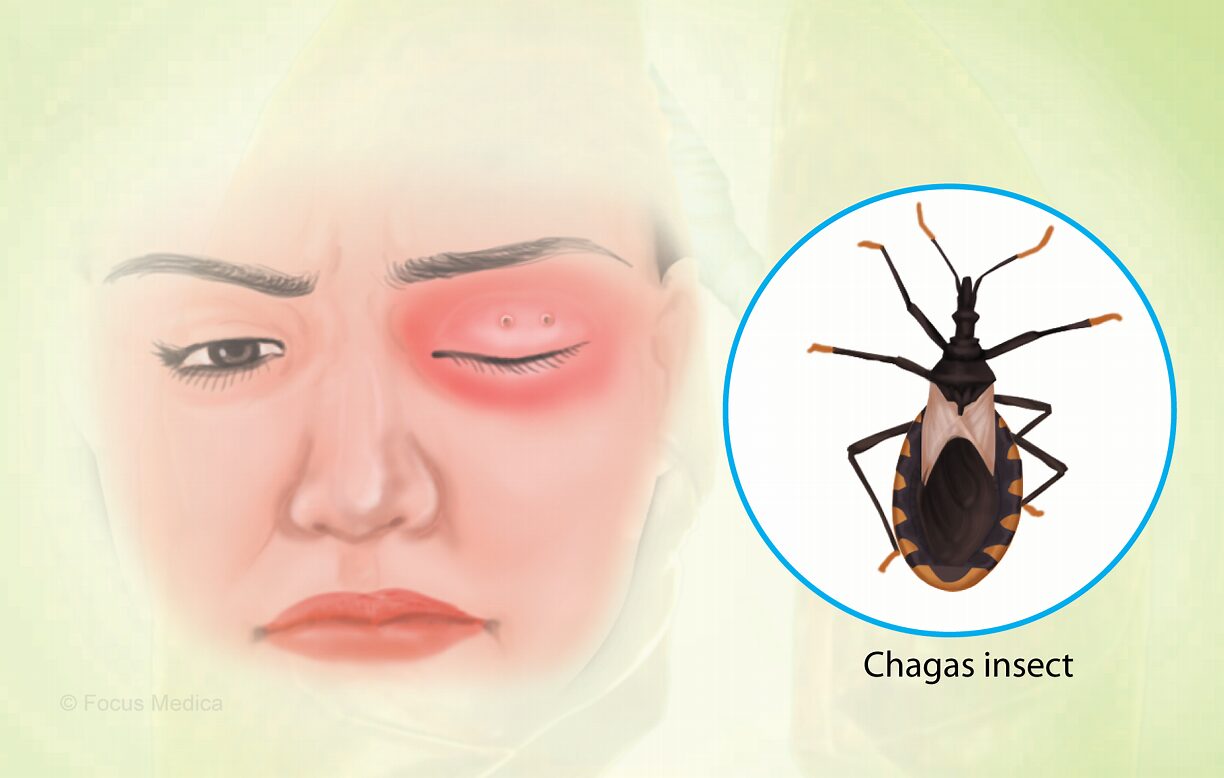Chagas Disease: Symptoms, Treatment
What are the symptoms of Chagas disease?
Chagas disease, also known as American trypanosomiasis, is caused by the parasite Trypanosoma cruzi. The symptoms can vary depending on the stage of the disease:
Acute Phase (Initial Infection):
- Fever
- Fatigue
- Body aches
- Headache
- Rash
- Loss of appetite
- Diarrhea or vomiting
- Swollen lymph nodes
- Swelling at the infection site (a skin lesion called chagoma or Romaña’s sign around the eye)
Many people don’t experience acute symptoms or mistake them for another illness during this initial phase.
Indeterminate/Latent Phase:
- No symptoms
- This phase can last for decades after the initial acute infection
Chronic Phase (Develops Years/Decades Later):
- Cardiac complications (arrhythmias, heart failure, enlarged heart)
- Digestive issues (enlarged esophagus or colon)
- Neurological problems in some cases
The severity depends on how much tissue/organ damage has occurred. Only about 20-30% of those infected progress to the chronic phase.
Risk Factors:
- Being born/living in endemic areas (Mexico, Central/South America)
- Poor housing conditions that allow triatomine bug infestation
- Blood transfusions or organ transplants (rare risk in non-endemic areas)
- Congenital transmission from infected mother to baby
Early diagnosis and treatment during the acute or indeterminate phases is crucial to try to prevent the development of permanent organ damage later on. Many don’t realize they are infected until chronic symptoms arise years or decades later.
What is the treatment for Chagas disease?
The treatment for Chagas disease depends on the stage of the infection:
Acute Phase:
- Anti-parasitic medications like benznidazole or nifurtimox are recommended
- These drugs aim to eliminate the Trypanosoma cruzi parasite from the body
- Treatment is most effective if started early in the acute phase
Indeterminate/Chronic Phase:
- Anti-parasitic treatment is less effective but may still be tried, especially in children
- Treatment helps reduce the further progression of the disease
- Medications have significant side effects and must be carefully monitored
If complications have already developed, treatment focuses on managing the symptoms:
For Cardiac Complications:
- Medications to improve heart function (ACE inhibitors, diuretics, etc.)
- Pacemakers or other devices to regulate abnormal heart rhythms
- Possible surgery for severe heart failure or aneurysms
For Digestive Complications:
- Medications to improve swallowing and intestinal motility
- Surgery may be required for severe megaesophagus or megacolon
Supportive care and management of other symptoms is also important, such as:
- Antiparasitic prevention during pregnancy for congenital cases
- Blood bank screening to prevent transmission via transfusions
- Advanced cardiac care and transplantation in end-stage heart disease
The best approach is early detection and treatment before chronic complications develop. Good housing, vector control, and screening are key for prevention in endemic areas.
Even without anti-parasitic treatment, only around 30% of chronic cases progress to develop fatal complications. Early medical care can improve prognosis significantly.




